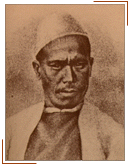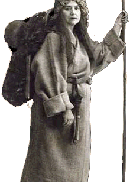I’m on schedule with my translation work but not ahead. Writing about exhaustion is exhausting. This evening I took a little break to look at a National Geographic DVD about Tibet. These DVD’s came free with a Sunday edition of a British newspaper, and they seem to be circulating around the ex-pat community. Our mothers all give them to us because they think we’re so isolated! (?)
The book I’m translating is not set in Tibet, but it is in the Tibetan cultural zone, and I thought it would be interesting to see some film of the area. It turned out the DVD was orientated towards human interest rather than landscapes, and towards the experience of non-Tibetans in particular. I though this rather strange in a National Geographic film, but maybe I’m being naive. It seemed a bit low budget, and rather inclined to preserve the Mystery Of Tibet aura, rather than enlighten the viewers.
Once I got over my disappointment, I did get quite engrossed in the first human interest story. For most of the 19th century, Tibet was closed to foreigners, but that didn’t stop them trying to get in, usually for reasons that had little to do with fascination for Tibetan culture. Spies, conquerors and missionaries just about sums it up. The Russians and the British were squaring off on either side of the Himalayas. The very existence of a country called Afghanistan is another product of this now little-known history.
 The first story on the DVD, about Nain Singh, the Pundit, was truly remarkable. He was born in the Himalayan foothills at a time when the British ruled India. He was recruited to travel through Tibet to Lhassa, carrying out geographical surveying on the way. His tools were a carefully calibrated walking pace, some modified prayer beads for counting his paces, and some measuring equipment concealed in a prayer wheel. He wandered quietly into Tibet with the trading caravans, stayed in Lhassa and wandered quietly back out again, with his information. If he had been caught he would have been killed, nevertheless, he could just as easily have died from the conditions he encountered.
The first story on the DVD, about Nain Singh, the Pundit, was truly remarkable. He was born in the Himalayan foothills at a time when the British ruled India. He was recruited to travel through Tibet to Lhassa, carrying out geographical surveying on the way. His tools were a carefully calibrated walking pace, some modified prayer beads for counting his paces, and some measuring equipment concealed in a prayer wheel. He wandered quietly into Tibet with the trading caravans, stayed in Lhassa and wandered quietly back out again, with his information. If he had been caught he would have been killed, nevertheless, he could just as easily have died from the conditions he encountered.
 The other Tibetan explorer I admire didn’t make it into this DVD. She came along just a little too late. But she has the advantage of having been a true proponent of Tibetan culture, whose journey to Lhassa was a genuine pilgrimage. I enjoyed reading her travel writings on my first trip to India and Nepal, while waiting for planes and things. Her name was Alexandra David-Neel, she was born in Paris, and ended her life not far from where I now live, in Digne-les-Bains. She was to all intents and purposes a European Tibetan Bhuddist and performed the ceremonies usually expected of a traveling lama in the Himalayan villages she passed through. She also made it in and out without carnage. I emphasise this point because the second ‘hero’ of the National Geographic DVD failed in this respect.
The other Tibetan explorer I admire didn’t make it into this DVD. She came along just a little too late. But she has the advantage of having been a true proponent of Tibetan culture, whose journey to Lhassa was a genuine pilgrimage. I enjoyed reading her travel writings on my first trip to India and Nepal, while waiting for planes and things. Her name was Alexandra David-Neel, she was born in Paris, and ended her life not far from where I now live, in Digne-les-Bains. She was to all intents and purposes a European Tibetan Bhuddist and performed the ceremonies usually expected of a traveling lama in the Himalayan villages she passed through. She also made it in and out without carnage. I emphasise this point because the second ‘hero’ of the National Geographic DVD failed in this respect.
History is full of amazing things, people and places, but often only a few of them are at the forefront of our minds. In particular, the achievements of women and non-westerners tend to fall by the wayside. I was glad to learn of a new one and be reminded of another … also the battle for Tibet goes on, while most of us know little about it.
PS. Speaking of Westo-centrism, I had to laugh at the National Geographic highlighting the point that the only use the Tibetans had found for the wheel was in the prayer wheel. If they’re going to go to the trouble of mentioning that, they might also draw people’s attention to the fact that wheeled transport would be bloody useless in Himalayan conditions. Just in case the viewers are lacking enough experience of such places to figure that out. But I suppose it’s part and parcel of the ‘strange and primitive people’ presentation.
Hah! (the wheel thing), very amusing. Couldn’t help but notice how your determination to immerse yourself in this job reflects beautifully on your role as someone who sees opportunities to learn and get fascinated, everywhere.